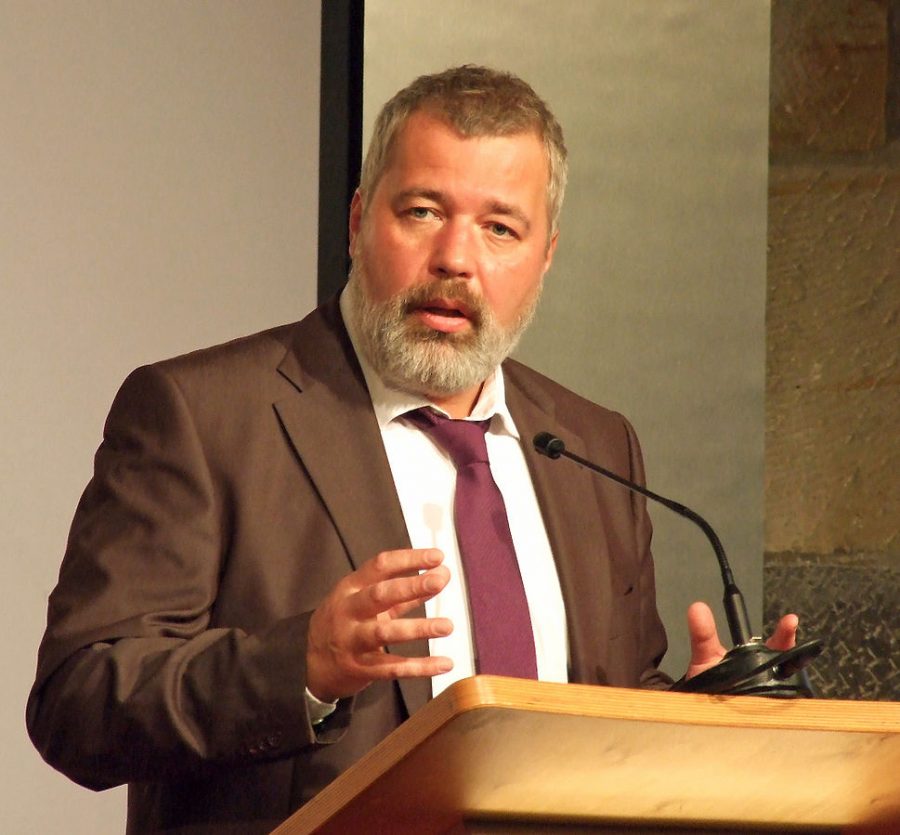Omnium Gatherum
Dmitry Muratov (above), and Maria Ressa, were jointly awarded the Nobel Peace Prize this year for their work in journalism.
October 22, 2021
In his final Netflix special, titled The Closer, the great Dave Chappelle plays court jester as he seeks to bring reality to perceived kings through humor. His 72-minute diatribe takes aim at many, but no hornet’s nest was quite so vigorously kicked as that of the LGBT community. You may have heard about proposed boycotts and employee walkouts directed at Netflix for hosting Chappelle’s perceived “transphobia.” Why, exactly, would the comedian choose to antagonize such a vocal group?
As I said, Chappelle’s comedy takes aim at those whom he believes to be in a position of power. Throughout this special, he references his critics, and he seems most offended by the claim that he “punches down.” His goal, particularly in The Closer, is to punch up and bring humility to the protected beau-monde of modern America. From his worldview, those most in need of humbling are whites (especially white women) and the LGBT community. Most of us are familiar with (overwhelmingly white) standup comics and late-night hosts seeking laughs at the expense of what they see as white cultural hegemons. The LGBT community is generally spared from this treatment. Chappelle takes issue with that reprieve, which he explains through the case of rapper DaBaby. John Lyndale Kirk, known as DaBaby, shot and killed a black man. He also made homophobic remarks at a concert. Outrage, by what Chappelle calls the “Gay Press,” has put the rapper into cultural exile. The comedian says gay feelings, in this case, outweighed a black life. Murder, robbery, and battery were excusable. Homophobia was not. In Chappelle’s eyes, fifty years of pride parades have handed the LGBT community a cultural veto that the black community lacks after centuries of activism. In his words, Jenner had an easier time changing names from Bruce to Caitlyn than did Ali from Cassius to Muhammad.
Chappelle argues that when a group is spared this criticism, it becomes sanctimonious, capricious, and insular. He highlights the dangers of LGBT tribalism through the story of his transgender friend, Daphne Dorman. After defending the comedian from backlash on twitter, Dorman was cyber-bullied by members of the LGBT community and, soon thereafter, committed suicide. Chappelle believes that the bullying that Dorman underwent resulted from the cultural impunity that the LGBT community supposedly enjoys. He believes that by exposing the community to jokes at their expense, to humility, he can spare others from the same fate as Dorman.
Russian and Filipino journalists Dmitry Muratov and Maria Ressa were jointly awarded the Nobel Peace Prize. The two reporters work under authoritarian regimes and face regular threats to their lives and freedom because of their activism—both report on corruption and advocate for freedom of the press.
The first R-rated movie I ever watched was the war epic and biopic Patton. When released in 1970, the movie was rated R. However, Patton can now be streamed on Hulu with the stated rating of PG. The movie is no less violent or mature than the day it was released some fifty years ago. What has changed is society. Specifically, modern Americans are less sensitive to obscenity. Once, cursing was heavily restricted to age, sex, class, and circumstance.
Teachers, parents, and the media have generally lost interest in policing linguistic morality. Reversing that multi-generational trend is too great a task for me even to suggest. Instead, I argue that politics should be as free from vulgarity as possible. Several Anselmians experienced this era’s vulgarity when anti-vaccine protesters shut down the executive council meeting at the New Hampshire Institute of Politics. One protester shouted curses at a female student ambassador one-third his age. When she objected, another protester shouted that she was “offended by language, but not by tyranny.” I earnestly believe that we can live in a society that is both free and where men do not aim profanity at young women.
As no rabid anti-vaxxers are likely to read this reproach, I will instead end with a plea for those of us on the Hilltop. Politics are important. Often, they demand passion. But please, do not sink to obscenity. A recent trend has seen college students (and others) across the nation shouting “F*** Joe Biden” at sporting events. No matter our politics, this is beneath us.



